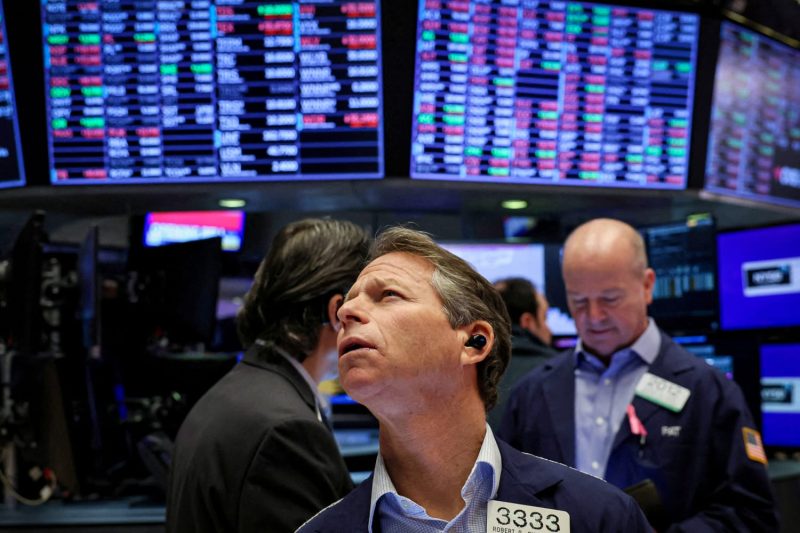Body:
Understanding Market Reactions
The stock market’s fluctuations to inflation news can be hair-raising to even the most seasoned investors. With every announcement or prediction, market indices can surge or plunge. This rapid response and high volatility lead to an understandable sense of panic among investors. However, it’s crucial to remember that these reactions are normal events in a market economy, even if they are often amplified by media hype.
Understanding Inflation
To understand the impact of inflation on the stock market, one must first understand what inflation is. In simple terms, inflation is the overall rise in prices over time, leading to a decrease in purchasing power. While moderate inflation is seen as a healthy sign of a growing economy, high inflation can exacerbate income inequality and erode savings, causing economic instability.
Inflation and Stock Market Connection
In an environment of rising inflation, companies may face higher production costs, which in turn could negatively influence their profits. Consequently, their stock prices may go down, thus affecting the wider market indices. Additionally, inflation often leads to higher interest rates, which can make borrowing more expensive for businesses and lead to decreased capital expenditure – another downward pressure on stock prices.
However, it’s essential to note that the relationship between inflation and the stock market is complex and fluid. Some sectors could be hurt more than others. For example, companies with pricing power or those in the sectors resistant to inflation, such as technology or healthcare, might fare better than those in the more vulnerable sectors.
Steady the Course
The crucial factor for investors in such turbulent times is not to let fear dictate their investment decisions. The stock market is a long-term investment. Although inflation can have short-term impacts, over time, most markets have not only weathered such storms but also generated substantial positive returns.
Think Long-Term
Investors should keep in mind that inflation fears and the resulting stock market volatility can often be temporary. Over time, companies adjust to the new price levels, and markets tend to stabilize. A long-term perspective can help investors ride out these periods of instability without making hasty decisions that could hurt their portfolios.
There’s significant value in staying the course and maintaining a diversified portfolio, designed to weather both inflationary and deflationary periods. Rebalancing the portfolio to adapt to inflationary pressures may be necessary, but this should be done methodically and strategically, not as a knee-jerk reaction to market turbulence.
Lastly, investors should seek advice from financial advisors to understand the potential impact on their specific portfolios, and design strategies to mitigate risk and potentially capitalize on these market conditions.
To sum up, while inflation can lead to stock market volatility, it’s vital for investors not to panic. Markets tend to be resilient over the long term, and a diversified, balanced investment strategy can navigate inflation fluctuations.
